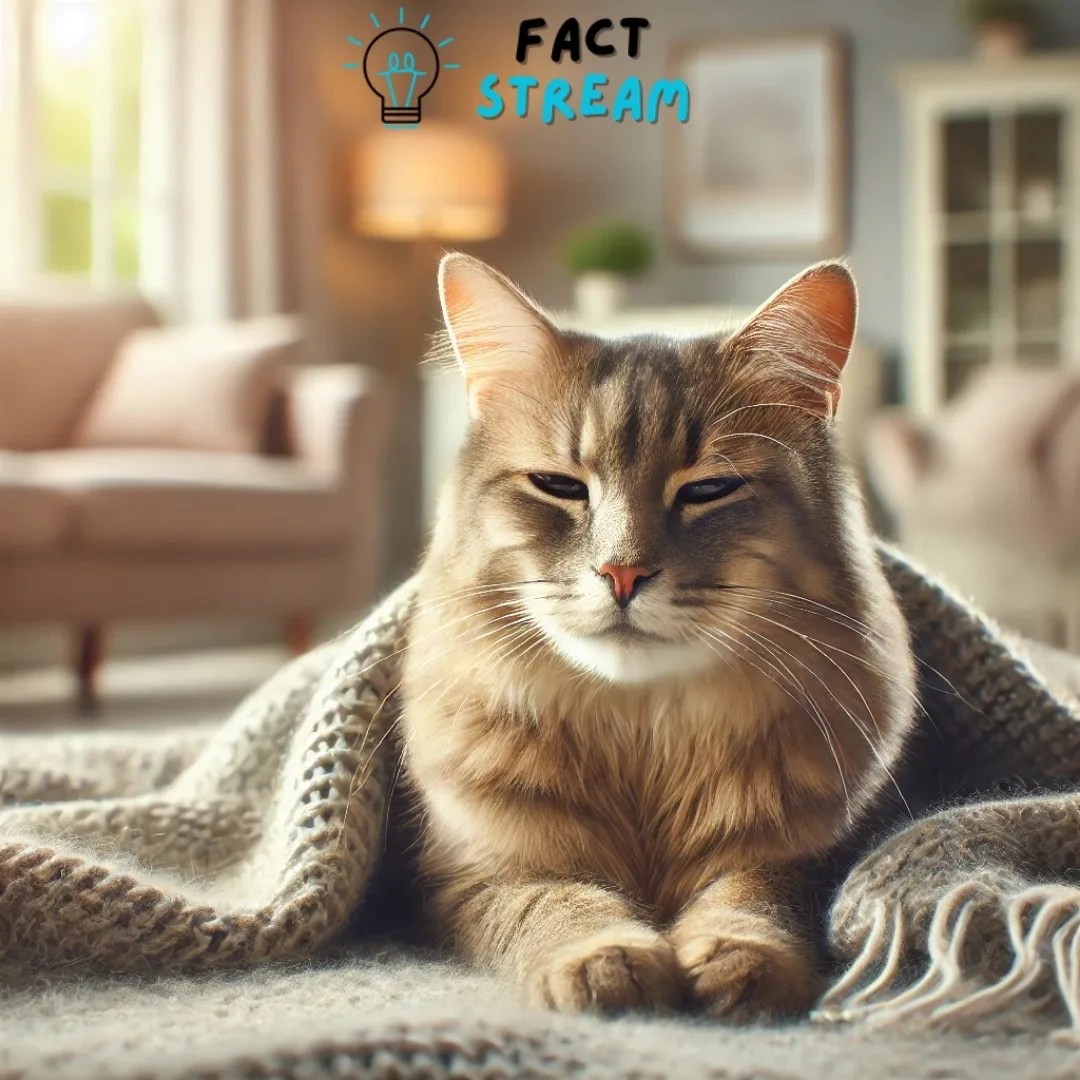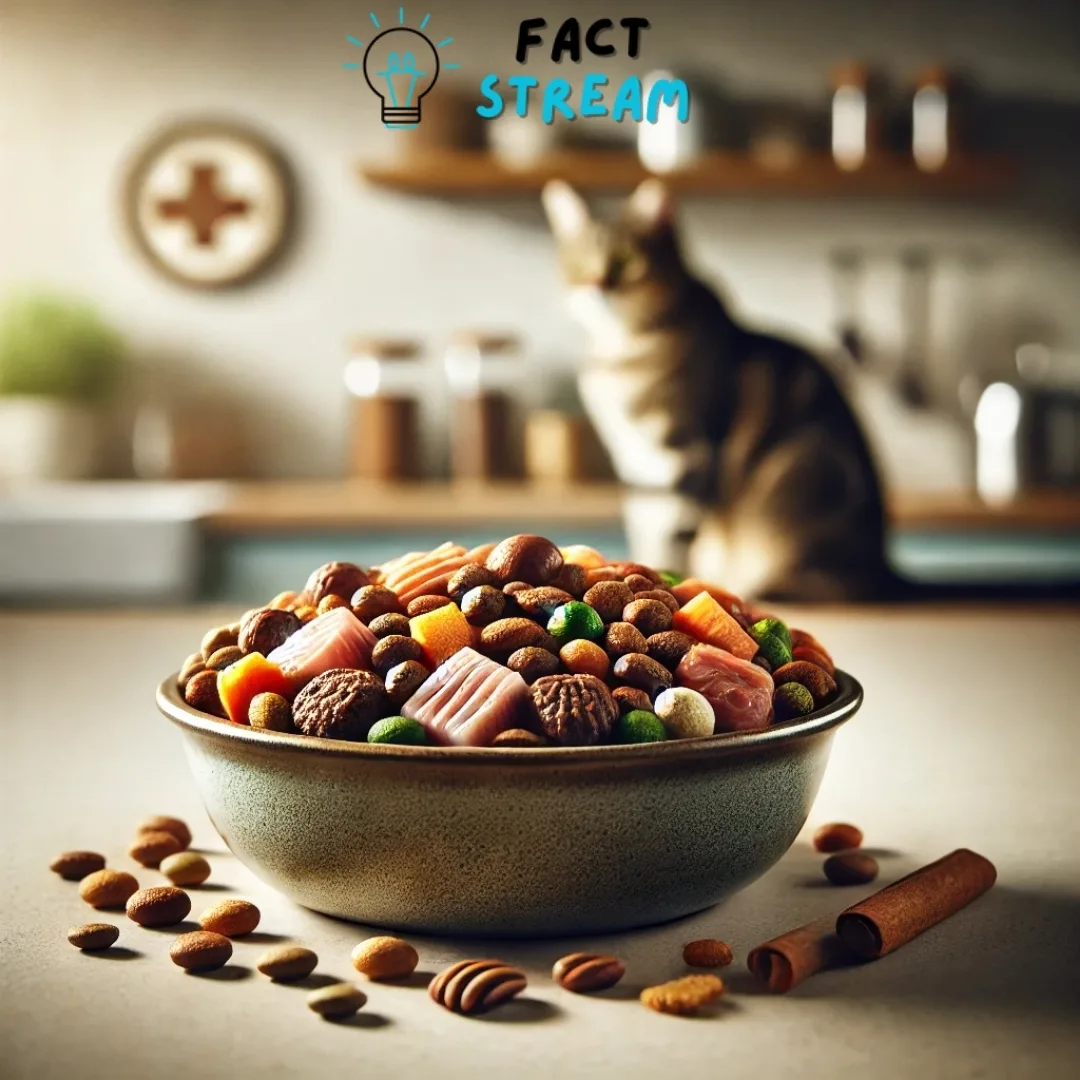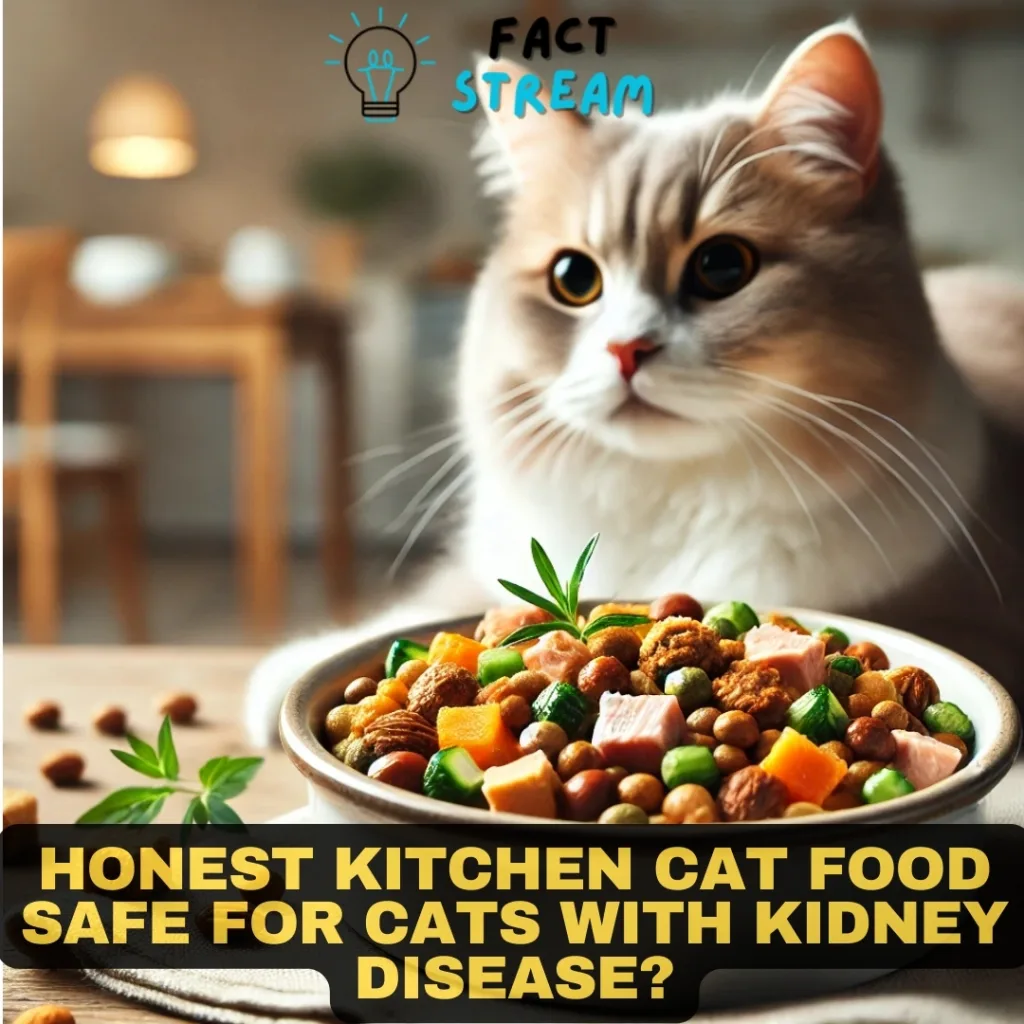Honest Kitchen Cat Food Safe for Cats with Kidney Disease?
As a loving cat owner, you want to give your cat the best care, especially if they have health problems. Kidney disease is one of those problems. Choosing the right food is super important if your cat has kidney disease. You might be wondering if The Honest Kitchen is a safe choice. Let’s find out!
What is Kidney Disease in Cats?
Kidney disease is a common health issue in cats. It happens when a cat’s kidneys aren’t working well. It’s also called Chronic Kidney Disease (CKD). It’s most common in older cats.

Here are some things that can cause kidney disease:
- Genes
- Infections
- Toxins
- Getting old
Look out for these signs of kidney disease:
- Drinking more water than usual
- Peeing more than usual
- Losing weight
- Feeling tired
Finding kidney disease early is really important. That way, you can help your cat feel better.
Food for Cats with Kidney Disease
Cats with kidney disease need special food. The food should be low in phosphorus and protein. It should also have controlled sodium levels. Here’s why:
- Low Phosphorus: Phosphorus is a mineral. Healthy kidneys clean it out of the blood. But if the kidneys are sick, phosphorus builds up. This can make the kidneys even worse.
- Low Protein: Protein is good for cats, but it can be hard for sick kidneys to process. Less protein means less work for the kidneys.
- Controlled Sodium: Sodium is salt. It can affect how much water a cat’s body holds and their blood pressure. These are important for cats with kidney disease.
- Lots of Moisture: Wet food helps cats stay hydrated. This is especially important for their kidneys. Wet food includes canned food or food you add water to.
The Honest Kitchen: Good Ingredients, But Not for Kidney Disease
The Honest Kitchen is known for using good ingredients, like real meat, fruits, and vegetables. The food is minimally processed. This means the good stuff stays in the food. The Honest Kitchen states that while they don’t make prescription diets, some of their recipes have the right amounts of protein, phosphorus, and sodium for cats with kidney problems. They also have a lot of moisture.

But, The Honest Kitchen recipes aren’t specifically made for cats with kidney disease. Here’s what to keep in mind:
- Phosphorus and Protein: To know how much phosphorus and protein is in a specific recipe, check the Honest Kitchen website or ask the company.
- Transparency: One cat owner said that Honest Kitchen didn’t tell them the exact amount of nutrients in their food. This is worrisome. It’s important to know what’s in the food, especially for cats with kidney problems.
What’s the Best Food for Cats with Kidney Disease?
Prescription or therapeutic diets are the best options for cats with kidney disease. They have a combination of qualities that are good for cats with kidney problems.
Here are some of the best foods for cats with kidney disease:
- Royal Canin Veterinary Diet Renal Support D Morsels in Gravy: This is a good all-around choice. It has low phosphorus and the right amount of sodium. It also has extra B vitamins and omega-3 fatty acids. Omega-3 fatty acids help fight inflammation. Inflammation is when the body is irritated or swollen. Reviewers said their cats liked this food, even picky cats. Some reviewers also said that their underweight cats gained weight after eating this food.
- Hill’s Prescription Diet k/d Kidney Care with Chicken Canned Cat Food: This wet food is easy for cats to eat. It has animal-based protein. This food has omega-3 fatty acids from fish oil to help reduce inflammation. It also has controlled phosphorus. The food is free of artificial colors and added sweeteners.
- Darwin’s Natural Intelligent Design™ KS Kidney Support Raw Cat Food: This is a raw food option. It limits how much phosphorus the body can absorb. It also has omega-3 fatty acids and extra B-complex vitamins.
- Royal Canin Veterinary Diet Renal Support F Dry Cat Food: This is a dry food. Dry food is also called kibble. This food is good for cats who like kibble. It has low protein and limited phosphorus. It also has added omega-3s.
- Purina Pro Plan Veterinary Diets NF Kidney Function Advanced Care: This canned food has controlled protein levels and low phosphorus. It also has less sodium.
What Should Cats with Kidney Disease Avoid Eating?
Here are some things to avoid:
- Foods High in Phosphorus: Some foods have a lot of phosphorus. These foods include bone meal, meat by-products, and fish.
- High Sodium: Don’t give salty treats or foods with extra salt.
Always Talk to Your Vet
Before you change your cat’s food, talk to your vet. This is especially important if your cat has kidney disease. Your vet can do tests to see how well your cat’s kidneys are working. Then, they can tell you what kind of food is best for your cat.
Here’s why your vet is so important:
- Every cat is different: The best food for one cat might not be the best for another. It depends on how bad the kidney disease is. It also depends on other things about the cat’s health.
- Phosphorus levels are different: Even foods from the same brand can have different amounts of phosphorus. Your vet can help you choose the right ones.
- Supplements and Medicines: Your vet might give your cat medicine to help with their kidneys. They can tell you if the medicine will affect your cat’s food.
How Much Phosphorus Can a Cat with Kidney Disease Have?
The ideal diet for a cat with kidney disease has less than 0.5% phosphorus. It’s important to calculate this based on the “dry matter” of the food. Dry matter means taking out the moisture.
Can Cats Eat The Honest Kitchen?
Yes, cats can eat The Honest Kitchen. They make different kinds of cat food:
- Dehydrated Cat Food: This is their original food. It’s like powder that you mix with water.
- Wet Cat Food: They also make wet food. This includes pate and minced recipes.
- Dry Cat Food: They also make kibble. Kibble is dry food. The Honest Kitchen calls their kibble “Whole Food Clusters”.
Even though The Honest Kitchen uses good ingredients, their food is not made for cats with kidney disease. Talk to your vet to see if The Honest Kitchen is okay for your cat.
What Human Food Can I Give My Cat with Kidney Disease?
It’s super important to talk to your vet before giving your cat any human food. Many human foods can be bad for cats, especially cats with kidney problems.
Is Fancy Feast Okay for Cats with Kidney Disease?
Fancy Feast is okay for cats with kidney disease. But, cats with CKD need low-phosphorus food. Also, be careful about food made for urinary problems. These foods might be too acidic for cats with CKD.
Talk to your vet to see if Fancy Feast is okay for your cat. Your vet can check how much phosphorus is in the recipe. They can also tell you if it’s good for your cat.
Does The Honest Kitchen Have Low Phosphorus?
The Honest Kitchen doesn’t always have low phosphorus. It’s not made for cats with kidney disease.
To know how much phosphorus is in an Honest Kitchen recipe, check their website or call the company. One cat owner was upset because the company didn’t tell them how much of each nutrient was in their food. It’s important for companies to be open about how much phosphorus is in their food. This is especially important for cats with kidney problems.
Making Mealtime Fun
It can be hard to get your cat to eat. This is especially true if they’re picky or don’t feel good because of their kidneys. Here are some ideas to make mealtime fun:
- Warm the food: Warming up the food makes it smell better. It also tastes better.
- Try different flavors: See if your cat likes chicken, turkey, fish, or something else.
- Food toppers: You can add yummy things to your cat’s food. Some good toppers include freeze-dried salmon, bonito flakes, Fortiflora, or a little bit of broth. Make sure the broth is low in phosphorus. Always check with your vet before adding anything new.
- Small meals, more often: If your cat doesn’t eat much, try giving them smaller meals throughout the day.
Remember that taking care of a cat with kidney disease takes time. You’ll need to make changes along the way. Be patient and loving, and work closely with your vet. This will make a big difference for your cat.


